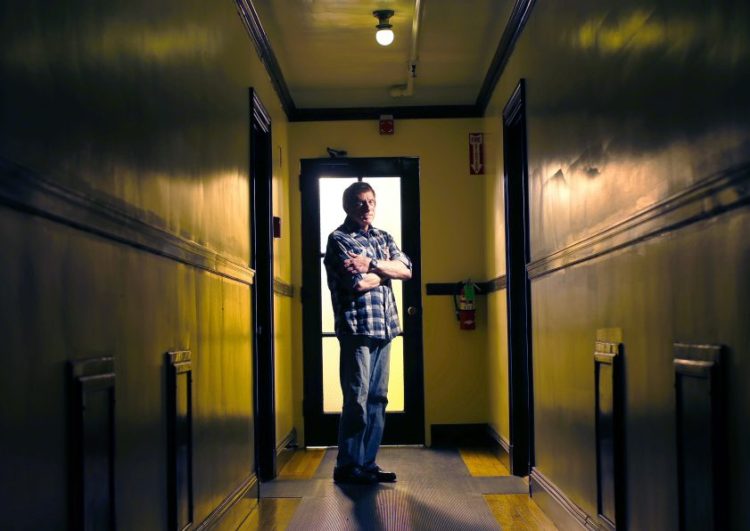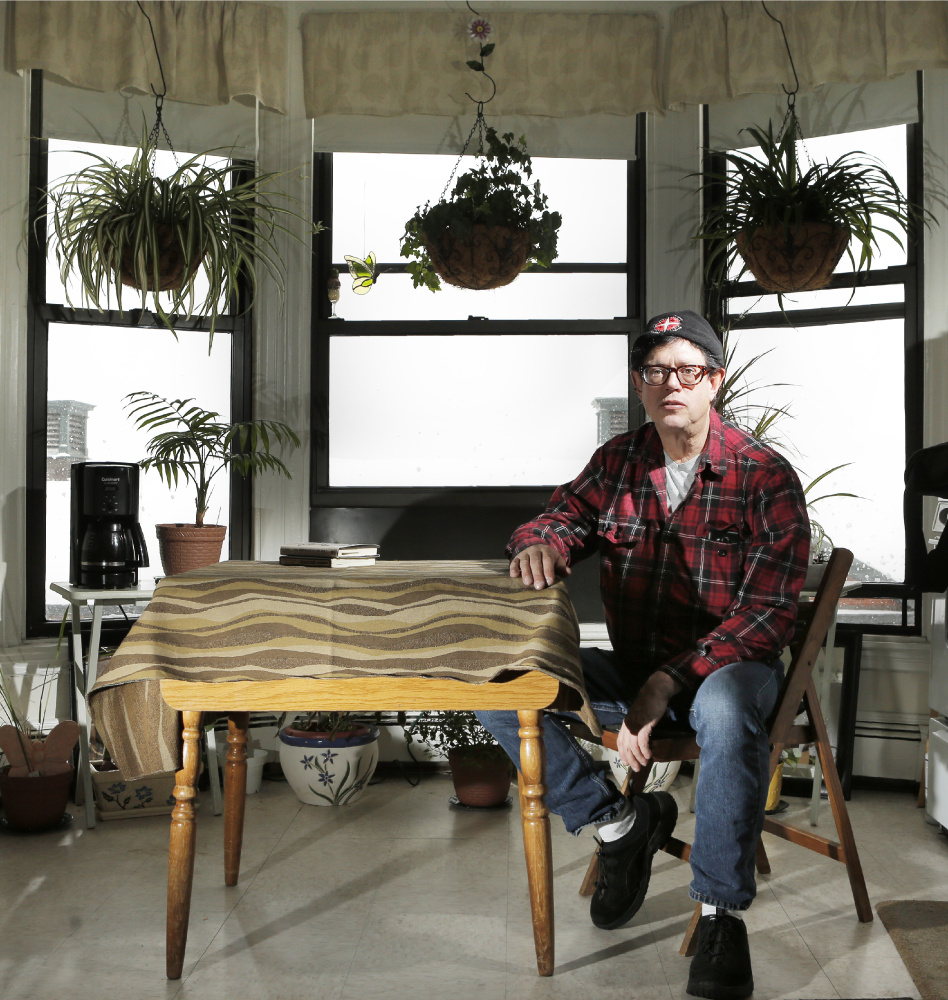The transfer of health care for people with HIV from a city-run clinic in Portland to a private nonprofit has been called a success, but only a fraction of the more than 200 patients and none of the staff followed the funding to the new care provider.
In December, the city transferred a $356,500 federal grant to Greater Portland Health, a nonprofit formerly called the Portland Community Health Center. That grant covered the cost of care for 229 patients, most of whom were expected to follow the funding to the nonprofit. However, only 33 of those patients have registered for care at the privately run clinic. None of the eight city workers transitioned to the nonprofit after their positions at the city-run clinic were eliminated.
Officials with the city and Greater Portland Health said they believe many patients chose clinics closer to their homes, or chose to follow a specific doctor. They did not have an explanation for why none of the staff decided to apply for work at the nonprofit.
However, former patients and staff at the city clinic say the closure severed long-term relationships and was difficult and stressful. Jenson Steel, a longtime India Street patient who helped with the transition, believes many of the patients were so upset that the city closed the HIV clinic that they actively resisted the city’s recommendation to receive care at Greater Portland Health.
“I think it was very obvious to most involved that the emotional trauma of the directed transfer of patients to a new facility was immediately recognized as a cold and callous result of the city manager and City Council,” said Steel, 67.
TWO CLINIC PROGRAMS CONTINUE
The HIV Positive Health Care program was one of three city-run services that had been offered at the India Street Public Health Clinic, which also houses the privately run Portland Free Clinic.
The two other city programs, a needle exchange program and an STD clinic, continue to operate at India Street and together serve more than 2,000 people. However, both services are now in need of additional funding and staffing because medical staff who used to work at the HIV clinic also were integral to those operations. The city could not provide an estimate of how much additional money will be needed for those programs.
“We have only been open with this staffing for two weeks, so it’s hard to estimate the revenue (from remaining patients) with this short experience,” Portland Health and Human Services Director Dawn Stiles said in an email.
City Manager Jon Jennings proposed transitioning clinical services to Greater Portland Health as part of the city budget for the fiscal year that began in July, arguing that the nonprofit health center was in a better position to deliver those services and secure federal grants in future funding cycles. The move also was part of a larger effort by Jennings to refocus government on core public services, such as public safety and infrastructure.
The transition of the HIV program was approved last May by the City Council in an 8-1 vote, with former Councilor Jon Hinck opposed.
Mayor Ethan Strimling voted to close the HIV clinic, even though he angered Jennings and the council by publicly criticizing – and some said misrepresenting – the plan.
Before voting, Strimling declared that India Street had “been saved” because the roughly 2,000 people who use the STD clinic and needle exchange would still be served at the city clinic.
“I think saying India Street was saved is a bit of an overstatement,” said Joey Brunelle, who had several friends who used the clinic and who became an advocate for the patients.
Brunelle organized rallies against the plan, but later served on a committee that helped implement the transition and provide assistance to patients. “While the transition was a success, it was really a tragedy (that) we dismantled this program in the first place,” he said. “It was a world-class program.”
CITY CITES SMOOTH TRANSITION
City officials deemed the transition a success because each patient had the support and counseling necessary to make well-informed and difficult decisions regarding their health care, they said. And officials with both the city and Greater Portland Health said the process was made smooth by committee members such as Steel and Brunelle who gave voice to patient concerns and provided advice about how to communicate with patients.
At the same time, officials hoped most of the patients and some former India Street staffers would move to Greater Portland Health, providing some continuity through the transition. Greater Portland Health CEO Leslie Clark said no one from the city applied for a position at the clinic and only 33 patients have transferred their records to GPH and seen a doctor.
Clark conceded that the migration of patients was a “small number.” She expects that number to grow, although the city said only four patients had not yet made a decision about where to receive care.
Greater Portland Health has increased its staff to care for the new patients, but still plans to hire more.
Dr. David Stein and Dr. Jennifer Rogers have been hired to provide HIV services, Clark said. The clinic has yet to fill a substance abuse and mental health counselor position. She said the full-time position may be split between two people, one man and one woman.
HARD DAYS FOR PATIENTS, STAFF
While the city provided assistance, former patients and staff say the transition was difficult.
Weeks before the city’s HIV clinic closed Dec. 30, staffers hosted a celebration for their patients with raffles, food, music, coffee and a hot chocolate bar, said Dr. Ann Lemire, the former medical director. In many cases, staff members were saying goodbye to patients they had been caring for since the clinic opened nearly two decades ago.
“We elected to go out on a positive (note),” Lemire said. “It wasn’t just hard for our patients to leave – it was hard for the staff, too. We had a tight bond with our patients. This was a place they felt welcomed at.”
Many of the patients at the city clinic also deal with mental health and substance abuse issues, in addition to their HIV status, factors that made the transition more difficult. Patients and former clinic staff who helped with the transition still feel a deep sense of loss because of the long-term relationships and comprehensive care at the city facility.
“I felt like India Street and the whole staff was on my side,” said Bart James, a 63-year-old who had been an India Street patient for five years. “It was too good to be true down there at India Street. I don’t anticipate getting that back.”
James said the news of the closure and the transition were stressful, mainly because he will have to relive his traumatic medical history. Diagnosed with HIV in 1991, he also is a two-time cancer survivor. His chemotherapy left him anemic, a condition caused by a lack of healthy red blood cells.
James said he needs mental health counseling after being a caretaker to two men who died of AIDs and to his mother, who died after suffering with Alzheimer’s disease. At times, he said, he questioned whether living was still worth it.
“I just really don’t want to tell another whole set of providers my story,” he said. “You’re having to relive your health care story all over again, especially if it’s a traumatic one.”
James was among the 50 or so patients who transferred their medical records to InterMed, a private health care provider. But he does not expect to see his doctor for the first time until March. At India Street, he went on a weekly basis. Instead of getting mental health and clinical services for his HIV in the same location, he will have to go to two different places.
PRAISE FOR NEW PRIVATE PROVIDER
Steel, on the other hand, chose to go to Greater Portland Health. He was a patient at India Street for 12 years, but said he has been pleased with his new medical provider.
“I gotta say, Greater Portland Health really stepped up to the plate to come up with a model close” to India Street’s, he said.
It’s not clear if the nonprofit will continue to get the same amount of public funding in future years.
Clark said the clinic, which now serves 86 HIV-positive patients, will have to reapply next year for the federal Ryan White grant, which provides more than $700,000 over a two-year period.
She expects the federal government will make changes to the formula used to distribute the grants, possibly in favor of federally qualified health centers such as Greater Portland Health. She said she does not think the smaller-than-expected number of patients will negatively affect future grant awards, at least in the short-term.
Meanwhile, questions remain about the viability of the services remaining at India Street.
“They are operating at a skeleton staff right now,” Steel said. “There could be one person there running the clinic at any given time and I don’t think that’s a good idea.
“(City officials) sound like they’re committed to keeping it going, but I don’t know how long it can exist on its own.”
MORE CHANGE AT INDIA STREET?
Jennings, the city manager, originally proposed also transferring the STD clinic and the needle exchange program, which disposes of old needles and provides new needles to intravenous drug users to prevent the spread of diseases, to Greater Portland Health. But community opposition, including public rallies and crowded public hearings, prompted a last-minute budget amendment from City Councilor Belinda Ray.
Ray’s amendment kept those services at India Street for the foreseeable future, allocating an additional $19,000 in lease payments at 103 India St. through July 1.
Clark said Greater Portland Health is continuing to have discussions with the city about those programs. She said that as of July 1, the clinic will need a medical provider to oversee operations, which the nonprofit may offer through a contract.
She anticipates state-level changes to the way it funds STD programs, such as those offered at the city clinic.
“There is a good likelihood that state funding is potentially going to change and go away next year,” Clark said. “So there is still a conversation that needs to be had in the community about ways to make sure those services are available. … We will help in any way we can.”
Brunelle, the patient advocate, said the members will continue to meet and advocate for the city to fully fund the STD and needle exchange programs.
“It’s not really a tenable situation,” Brunelle said of the current arrangement. “It’s on the horizon to have a big fight over funding. It hasn’t been given the resources to thrive.”
Randy Billings can be contacted at 791-6346 or at:
Copy the Story LinkSend questions/comments to the editors.





Success. Please wait for the page to reload. If the page does not reload within 5 seconds, please refresh the page.
Enter your email and password to access comments.
Hi, to comment on stories you must . This profile is in addition to your subscription and website login.
Already have a commenting profile? .
Invalid username/password.
Please check your email to confirm and complete your registration.
Only subscribers are eligible to post comments. Please subscribe or login first for digital access. Here’s why.
Use the form below to reset your password. When you've submitted your account email, we will send an email with a reset code.